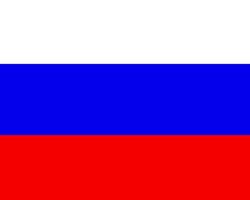The Russian economy needs a new growth model which may unlock the country’s massive potential, the International Monetary Fund said in its assessment.
The new growth model should include higher investment, a better and more efficient use of resources, and more diversification, the IMF added.
For several years before the 2008 global financial crisis, the Russian economy grew rapidly. Income per capita increased, unemployment fell, fiscal and external buffers were strengthened, and there were significant improvements in institutional frameworks.
There was a swift rebound after the crisis. However, growth began to slow down and medium-term prospects have become progressively less rosy. The IMF says the Russian economy is unable to replicate its previous model of high growth fueled by rising oil prices and the utilization of spare capacity.

In the latest annual review of the Russian economy by the IMF, called the “Russian Federation: 2013 Article IV Consultation”, Antonio Spilimbergo, IMF’s mission chief for Russia said:
“Achieving higher sustainable growth is clearly possible, but that would require a new growth model, relying on a more diversified economic structure, strengthened institutions, and structural reforms.”
Slowdown of the Russian economy
IMF economists predict that the economy in Russia will slow to 1.5% growth in 2013, compared to 3.5% last year, and higher rates earlier on.
Much of this observed slowdown is the result of:
- Weak industrial production
- Low investment
- Poor external demand
IMF economists forecast 3% growth in the Russian economy in 2014. They believe growth will stay within that range during the medium-term.
There is still some slack in the economy despite the slowdown. Although inflation is heading down, it is still higher than the central bank’s target. Unemployment is nearing historic lows. According to available data, there is high utilization of existing capacity.
Fiscal rule
A fiscal policy of stimulating the economy may not pay much dividend, economists warn.
Spilimbergo said:
“Expansionary monetary and fiscal policies can certainly provide some temporary support, but this may come at the expense of generating policy uncertainty and may not provide a long-lasting boost.”
Monetary measures to stimulate the economy may undermine the credibility of the new fiscal regulation that links expenditure to oil revenue. IMF economists say the regulation should be tightened up to “save more of the exhaustible oil income and rebuild the fiscal buffers that served Russia well in the last crisis.”
The IMF agrees with the present monetary policy which concentrates on making sure inflation remains low and stable. It welcomes anti-inflationary measures put in place, as well as allowing increased exchange rate flexibility to continue.
To boost growth in the Russian economy
According to the IMF report, Russian authorities generally agree with the structural agenda to encourage economic growth in the country over the medium term. It adds that “an ambitious set of reforms could deliver this desired outcome.”
Further ahead, the Russian economy should rely less on increasing oil prices and more on more on higher investment and a more efficient use of resources.
In order to achieve this, measures need to be put in place to increase productivity and improve the investment climate, governance, and transparency.
According to the IMF, “The financial sector remains a lynchpin of the growth agenda, intermediating available resources to productive ends.” The state should reduce its current control over dominant banks in order to level the playing field and encourage healthy competition.
The IMF adds “Further, improvements in corporate governance and consolidation of the fragmented banking system would encourage a more efficient allocation of investment capital that could provide the needed boost to the Russian economy.”
Tax changes
Russia should exploit the clear comparative advantage it has in the energy sector. The country’s natural source of growth would be underpinned if there were some changes in the tax regime, as well as improvements in property rights protection and access to distribution infrastructure. This would provide an environment for foreign technical expertise to enter the scene, as well as nimble domestic players.
The report says that the efficiency of public expenditure needs to improve further. The government’s privatization agenda needs to be implemented more vigorously and “pension reform can support better public finances and catalyze growth by facilitating better labor force participation and private sector involvement.”
The IMF wrote:
“The current economic environment not only poses a challenge to policymakers, but also provides a timely opportunity for reform. Improvements in the macroeconomic policy framework in recent years placed Russia in a strong position in a global environment buffeted by crises. A focused reform agenda would further strengthen this armor, while delivering higher growth – and better living standards for its population – for years to come.”
Prime Minister Dmitry Medvedev says growth is “artificial”
Dmitry Medvedev, the Russian Prime Minister, said he knows what is preventing his country’s economy from real growth.
In an article published in the Russian daily Vedomosti, Medvedev wrote that the country’s growth is mainly artificial and far too dependent on oil industry revenues. He added that the Russian environment for investment is “terrible”.
He explained that output growth is mainly the result of large investment projects funded by the government and state-owned firms, higher farm subsidies, salary increases in the public sector, as well as other sectors fueled by the high price of oil.
There is a serious lack of private investment to replace government spending, party because investors do lot trust the public institutions, Medvedev wrote. State-owned companies hold 53% of the country’s entire loan portfolio.
Russia has two choices, according to Medvedev:
- Carry on forward in slow motion.
- Take a serious step forward.

